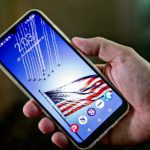 History
History  History
History  Health
Health 10 Everyday Activities That Secretly Alter Consciousness
 History
History Top 10 Historical Disasters Caused by Someone Calling in Sick
 Animals
Animals 10 New Shark Secrets That Recently Dropped
 Movies and TV
Movies and TV 10 Forgotten Realities of Early Live Television Broadcasts
 Technology
Technology 10 Stopgap Technologies That Became Industry Standards
 Weird Stuff
Weird Stuff 10 Wild Facts About Taxidermy That You Probably Didn’t Know
 Travel
Travel 10 Beautiful Travel Destinations (That Will Kill You)
 Miscellaneous
Miscellaneous 10 Modern Marriage Rituals Born from Corporate Branding
 Weird Stuff
Weird Stuff Ten Bizarre Visions of 2026 from Fiction
 History
History 10 “Modern” Problems with Surprising Historical Analogs
 Health
Health 10 Everyday Activities That Secretly Alter Consciousness
 History
History Top 10 Historical Disasters Caused by Someone Calling in Sick
Who's Behind Listverse?

Jamie Frater
Head Editor
Jamie founded Listverse due to an insatiable desire to share fascinating, obscure, and bizarre facts. He has been a guest speaker on numerous national radio and television stations and is a five time published author.
More About Us Animals
Animals 10 New Shark Secrets That Recently Dropped
 Movies and TV
Movies and TV 10 Forgotten Realities of Early Live Television Broadcasts
 Technology
Technology 10 Stopgap Technologies That Became Industry Standards
 Weird Stuff
Weird Stuff 10 Wild Facts About Taxidermy That You Probably Didn’t Know
 Travel
Travel 10 Beautiful Travel Destinations (That Will Kill You)
 Miscellaneous
Miscellaneous 10 Modern Marriage Rituals Born from Corporate Branding
 Weird Stuff
Weird Stuff Ten Bizarre Visions of 2026 from Fiction
10 Shocking Secrets Tech Giants Tried to Hide
In the world of technology, major companies often present themselves as champions of innovation, customer satisfaction, and ethical practices. However, beneath this polished surface, there are often secrets that these tech giants would prefer to keep hidden from the public.
From questionable data practices to covert tactics aimed at stifling competition, these revelations have often come to light through investigative journalism, whistleblower accounts, and regulatory scrutiny. The truth behind these secrets not only exposes the vulnerabilities within these corporations but also raises important questions about privacy, corporate responsibility, and the trust we place in technology.
Related: 10 Strange Habits That Prove People Don’t Care About Privacy
10 TikTok’s Data Privacy Concerns
TikTok, a wildly popular social media app owned by the Chinese company ByteDance, has faced significant scrutiny over its data privacy practices. Concerns arose about the potential for user data to be accessed by the Chinese government, raising alarms about privacy and security. The app collects a wide range of data, including location, device information, and browsing history, which led to fears that this data could be used for surveillance or to influence users.
In 2019, the U.S. government launched a national security review of TikTok, and several countries considered banning the app altogether due to these security concerns. The controversy was not just limited to government worries; many parents and privacy advocates expressed concerns about the app’s data collection methods, particularly regarding its young user base. TikTok’s popularity among teenagers made it a focal point for discussions on how social media platforms should handle minors’ data.
While ByteDance has consistently denied sharing data with the Chinese government and has made efforts to store data outside of China, these assurances have not fully alleviated public concern. The company even hired a U.S.-based CEO and established new data security measures to address these issues. Despite these efforts, the debate over TikTok’s data privacy remains a hot topic.[1]
9 Samsung’s Exploding Batteries
In 2016, Samsung faced a significant crisis when their highly anticipated Galaxy Note 7 smartphones began catching fire due to faulty batteries. Initially hailed as a groundbreaking device with cutting-edge features, the Galaxy Note 7 quickly became infamous for its explosive flaw. Reports of the phones overheating and bursting into flames started to surface just weeks after the product’s launch.
The situation escalated when incidents occurred during flights, prompting airlines to ban the device altogether. Despite the growing evidence, Samsung’s initial response was to issue a limited recall and replace the defective batteries, hoping to contain the problem and salvage their flagship product’s reputation. However, the replacements turned out to be just as dangerous.
As more devices caught fire, Samsung was forced to take more drastic action, eventually issuing a full recall of all Galaxy Note 7 units worldwide. This move marked one of the most significant product recalls in tech history and cost the company billions in revenue, not to mention the damage to its brand’s reputation. The incident led to stricter safety protocols across the industry and a more cautious approach to product launches in the future.[2]
8 Tesla’s Autopilot Safety Concerns
Tesla’s Autopilot feature, marketed as a cutting-edge advancement in driving technology, has been at the center of significant controversy over its safety. Despite the company’s bold claims that Autopilot can manage many aspects of driving, from highway cruising to navigating traffic, internal reports and real-world incidents tell a different story. Several crashes, some fatal, have been linked to drivers relying too heavily on Autopilot.
Investigations reveal that Tesla might have downplayed the system’s limitations, leading users to believe it is more autonomous and safer than it actually is. This gap between marketing and reality raises serious concerns about Tesla’s transparency and responsibility, especially since drivers are often lulled into a false sense of security, treating Autopilot as a fully autonomous driving solution rather than an assistive feature.
Adding fuel to the fire, Tesla’s CEO Elon Musk frequently makes public statements that suggest full self-driving capability is just around the corner, despite the technology not yet being ready for such claims. These optimistic predictions are at odds with the system’s actual performance, which still requires active supervision by the driver.
Critics argue that Tesla’s approach to Autopilot can be dangerously misleading, putting not only drivers but also other road users at risk. Tesla has been under increasing scrutiny from regulators, safety advocates, and the public, all questioning whether the drive for innovation might be outpacing the necessary safeguards.[3]
7 Yahoo’s Massive Data Breaches
Yahoo’s massive data breaches stand as some of the most significant cybersecurity failures in history, affecting billions of users. The first breach, which occurred in 2013 but was only disclosed in 2016, compromised the personal information of around three billion accounts. This included names, email addresses, phone numbers, birthdates, and security questions and answers.
What made this breach particularly concerning was Yahoo’s delayed response and initial underestimation of its severity. The company originally reported that one billion accounts had been compromised but later revised the number to three billion, revealing the true extent of the damage. This delay and the scale of the breach led to widespread criticism, with many questioning Yahoo’s transparency and commitment to user security.
Adding to the controversy, Yahoo was hit with a second data breach in 2014, which affected 500 million accounts and was also not disclosed until 2016. This breach involved hackers linked to the Russian government, raising further concerns about the vulnerability of user data. The fallout from these breaches was enormous, not just for Yahoo’s reputation but also for its financial standing.
The breaches significantly impacted Yahoo’s sale to Verizon, leading to a $350 million reduction in the purchase price. The breaches also led to numerous lawsuits and a multi-million dollar settlement for affected users.[4]
6 Uber’s “Greyball” Program
Uber’s “Greyball” program is one of the more notorious chapters in the company’s history, revealing the lengths to which the ride-hailing giant would go to evade regulatory scrutiny. Launched in 2014, Greyball was initially intended as a tool to protect drivers from fraud and protect the company from competing services. However, it quickly morphed into a method for identifying and misleading government officials who were trying to clamp down on Uber’s operations in cities where the service was restricted or outright banned.
The software used data from the Uber app, such as whether a user frequently opened and closed the app without booking a ride, the location of the request (e.g., near a government office), and even the credit card information to determine whether a user might be a regulator. If identified, these users would see a fake version of the app, complete with ghost cars that would never arrive to pick them up.
The existence of Greyball was kept under wraps until 2017 when an exposé by the New York Times blew the lid off the practice. The revelation sparked outrage, as it highlighted Uber’s willingness to engage in questionable practices to circumvent local laws and regulations. The fallout was significant: Uber faced investigations, public backlash, and legal actions that put the company on the defensive. It also led to further scrutiny of Uber’s corporate culture under then-CEO Travis Kalanick, who was already under fire for other ethical lapses within the company.[5]
5 Microsoft’s Windows 10 Data Collection
When Microsoft launched Windows 10 in 2015, the operating system quickly gained attention for its sleek design, improved performance, and new features. However, it didn’t take long for users and privacy advocates to raise alarms about the extent of data collection embedded within the system. Unlike previous versions of Windows, Windows 10 was set up to gather an unprecedented amount of user data by default.
This included everything from browsing history and location data to keystrokes and voice inputs through the Cortana assistant. While Microsoft argued that this data collection was necessary to improve user experience and deliver personalized services, many saw it as an overreach and a violation of privacy. What made the situation even more controversial was the lack of transparency and control given to users.
Although Microsoft provided options to limit data sharing, these settings were often buried deep within the system, and turning off data collection completely was nearly impossible. This led to widespread criticism and suspicion, with users feeling that they were being forced into an all-encompassing surveillance system disguised as an operating system.
The outcry prompted investigations and regulatory scrutiny in several countries, pushing Microsoft to release updates aimed at addressing privacy concerns.[6]
4 Amazon’s Anti-Union Efforts
Amazon, one of the world’s largest employers, has been under fire for its aggressive tactics to prevent workers from unionizing. In numerous instances, the company has been accused of employing a range of strategies designed to stifle union efforts. These tactics have included holding mandatory anti-union meetings, where employees are required to attend sessions discouraging them from supporting unionization.
Amazon has also been known to send out targeted messages and distribute anti-union literature to sway workers against organizing. Moreover, there have been reports of the company using sophisticated surveillance methods, such as monitoring social media activity and tracking employees’ sentiment toward union efforts within the workplace.
One of the most high-profile examples of Amazon’s anti-union efforts occurred in Bessemer, Alabama, in 2021. Workers at an Amazon warehouse attempted to form the company’s first-ever union in the United States, sparking a nationwide debate on workers’ rights. Amazon responded with a fierce campaign to dissuade workers, including text messages, posters in bathroom stalls, and even changing traffic light patterns near the facility to discourage union organizers from talking to employees in their cars. Despite these efforts, the union vote brought significant attention to the labor conditions at Amazon, even though the initial attempt to unionize was ultimately unsuccessful.[7]
3 Google’s Street View Wi-Fi Data Collection
In one of the more surprising revelations from Google, it was discovered that their Street View cars were doing more than just capturing panoramic images of neighborhoods—they were also collecting data from unsecured Wi-Fi networks. This clandestine data harvesting included emails, passwords, and other sensitive information from unsuspecting individuals as the cars roamed the streets.
Google initially claimed the data collection was accidental, attributing it to rogue code in the software used by the Street View cars. However, the explanation did little to quell the public outcry, and many questioned how such a significant breach could occur without anyone noticing. The incident, which became known as “Wi-Spy,” led to investigations in multiple countries and several lawsuits against Google.
Critics accused the tech giant of overstepping its boundaries and violating privacy on a massive scale. Despite Google’s assurances that the data was never used and was eventually deleted, the scandal highlighted the need for greater oversight and accountability in how tech companies handle data. It also sparked a broader conversation about digital privacy and the extent to which our everyday lives are monitored by the technology we use.[8]
2 Apple’s iPhone Throttling
Apple found itself in hot water in 2017 when it was revealed that the company had been quietly throttling the performance of older iPhones. This was not just a one-off issue but a deliberate move by Apple, which claimed the slowdown was to prevent unexpected shutdowns in devices with aging batteries. The company’s explanation was that as batteries degrade over time, they can’t deliver peak performance, so throttling the processor was meant to ensure that phones didn’t crash during demanding tasks.
However, Apple’s lack of transparency about this practice led many to believe it was a tactic to push consumers into upgrading to newer models, sparking widespread outrage and accusations of planned obsolescence. The backlash was swift and severe. Customers were furious that their phones were being slowed down without their knowledge, and many felt betrayed by a brand they trusted. Apple faced lawsuits and government inquiries in multiple countries, with critics arguing that users should have been informed about the throttling and given the option to replace their batteries instead of unknowingly dealing with reduced performance.
In response to the uproar, Apple offered discounted battery replacements and introduced a feature in iOS that allowed users to monitor their battery health and disable throttling if they chose. Despite these efforts to make amends, the scandal left a lasting mark on Apple’s reputation.[9]
1 Facebook’s Data Harvesting (Cambridge Analytica Scandal)
The Cambridge Analytica scandal, which erupted in 2018, revealed a shocking breach of privacy that exposed the dark side of Facebook’s data practices. At the heart of the scandal was the discovery that Cambridge Analytica, a British political consulting firm, had harvested data from millions of Facebook users without their consent. This data was then used to create detailed psychological profiles of voters, which were leveraged to influence political campaigns, most notably the 2016 U.S. presidential election.
The scandal highlighted how easily personal data could be misused and manipulated, raising serious concerns about privacy, data security, and the ethical responsibilities of tech giants like Facebook. What made the scandal even more unsettling was the revelation that Facebook had been aware of the data misuse for years but failed to take appropriate action. The company initially downplayed the significance of the breach, only to admit later that the personal information of up to 87 million users had been compromised.
The fallout from the scandal was massive, leading to public outrage, numerous lawsuits, and CEO Mark Zuckerberg being called to testify before Congress. The Cambridge Analytica scandal not only tarnished Facebook’s reputation but also sparked a global conversation about data privacy, the power of social media, and the need for stricter regulations to protect user information.[10]








